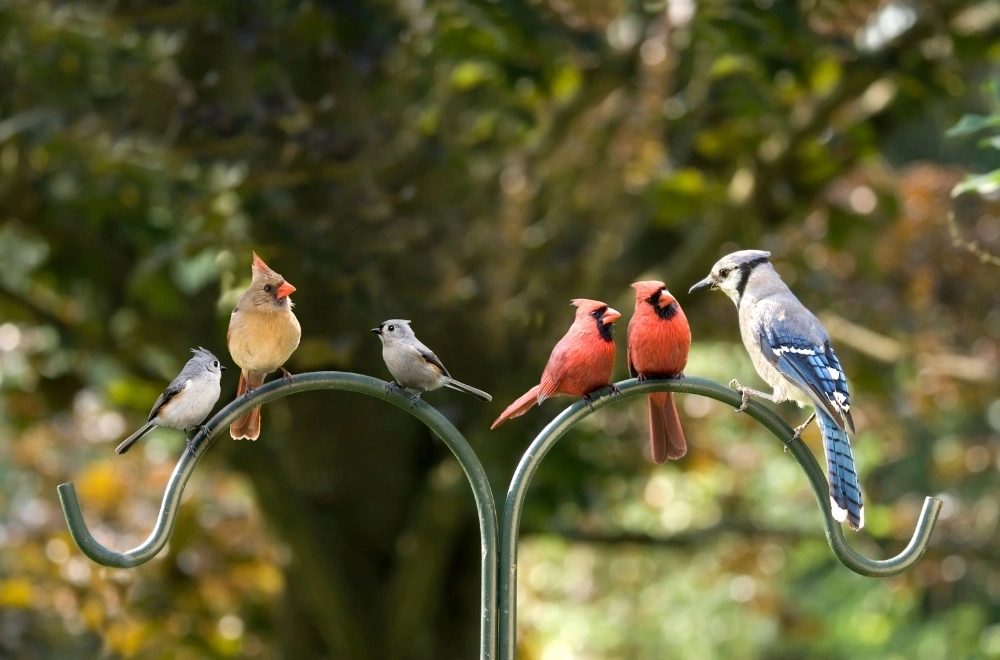Bringing a pet bird into your home can be a rewarding experience, offering companionship, beauty, and even entertainment. However, for beginners, choosing the right bird is crucial—some species require extensive care, while others are more forgiving and easier to manage.
If you’re new to bird ownership, you’ll want a species that is friendly, low-maintenance, and adaptable. In this guide, we’ll explore the best pet birds for beginners, their care requirements, personalities, and what makes them great companions.
1. Budgerigar (Budgie/Parakeet)
Scientific Name: Melopsittacus undulatus
Average Lifespan: 5-10 years
Size: 6-8 inches
Personality: Social, playful, intelligent
Why Budgies Are Great for Beginners
Budgies (also known as parakeets) are one of the most popular pet birds worldwide, and for good reason. They are small, affordable, and relatively easy to care for. These birds are highly social and can form strong bonds with their owners.
Care Requirements
- Diet: High-quality seed mix, fresh vegetables, and occasional fruits.
- Housing: A spacious cage (minimum 18x18x18 inches) with perches and toys.
- Social Needs: Budgies thrive with interaction—consider getting a pair if you’re away often.
- Training: They can learn to mimic words and perform simple tricks.
Pros & Cons
Small size, affordable, easy to tame
Can be noisy, may need a companion
2. Cockatiel
Scientific Name: Nymphicus hollandicus
Average Lifespan: 15-20 years
Size: 12-13 inches
Personality: Affectionate, gentle, curious
Why Cockatiels Are Great for Beginners
Cockatiels are known for their sweet and gentle nature, making them ideal for first-time bird owners. They are less demanding than larger parrots but still offer plenty of interaction and affection.
Care Requirements
- Diet: Pellets, seeds, fresh greens, and occasional treats like millet.
- Housing: A cage at least 24x24x24 inches with horizontal bars for climbing.
- Social Needs: They love attention and can become lonely if neglected.
- Training: Can whistle tunes and mimic simple sounds.
Pros & Cons
Friendly, good for families, relatively quiet
Dusty feathers (may trigger allergies)
3. Lovebird
Scientific Name: Agapornis species
Average Lifespan: 10-15 years
Size: 5-7 inches
Personality: Playful, energetic, affectionate
Why Lovebirds Are Great for Beginners
Lovebirds are small but full of personality. They are active, playful, and form strong bonds with their owners. While they are social, they can be kept singly if given enough attention.
Care Requirements
- Diet: Pellets, seeds, fruits, and vegetables.
- Housing: Minimum cage size of 24x18x18 inches with plenty of toys.
- Social Needs: Highly social—require daily interaction.
- Training: Can learn tricks but may not talk much.
Pros & Cons
Colorful, affectionate, entertaining
Can be nippy if not properly socialized
4. Finch
Scientific Name: Taeniopygia guttata (Zebra Finch)
Average Lifespan: 5-10 years
Size: 3-4 inches
Personality: Active, social, low-maintenance
Why Finches Are Great for Beginners
Finches are perfect for those who want a bird that is beautiful to watch but doesn’t require much handling. They are best kept in pairs or small groups and are relatively quiet.
Care Requirements
- Diet: High-quality finch seed mix, greens, and egg food.
- Housing: A long cage (at least 24x16x16 inches) for flying.
- Social Needs: Prefer companionship (same species).
- Training: Not typically hand-tame; more for observation.
Pros & Cons
Low-maintenance, quiet, great for small spaces
Not cuddly, not ideal for handling
5. Canary
Scientific Name: Serinus canaria domestica
Average Lifespan: 7-12 years
Size: 4-8 inches
Personality: Independent, melodious, gentle
Why Canaries Are Great for Beginners
Canaries are beloved for their beautiful singing and vibrant colors. They are independent birds that don’t require much handling, making them great for people who prefer a more hands-off pet.
Care Requirements
- Diet: Canary seed mix, fresh greens, and occasional fruits.
- Housing: A tall cage (minimum 18x18x24 inches) for flying.
- Social Needs: Prefer to be alone or in pairs (males may fight).
- Training: Known for singing, not for tricks.
Pros & Cons
Beautiful songs, low-maintenance, visually stunning
Not very interactive, mostly for observation
6. Pionus Parrot
Scientific Name: Pionus species
Average Lifespan: 25-40 years
Size: 10-12 inches
Personality: Calm, gentle, intelligent
Why Pionus Parrots Are Great for Beginners
For those interested in a medium-sized parrot, the Pionus is an excellent choice. They are quieter and more easygoing than other parrots like Amazons or Macaws.
Care Requirements
- Diet: Pellets, fresh fruits, vegetables, nuts.
- Housing: Large cage (minimum 36x24x36 inches).
- Social Needs: Needs daily interaction but less demanding than other parrots.
- Training: Can learn words and tricks.
Pros & Cons
Quiet for a parrot, intelligent, good temperament
Larger size, longer lifespan (commitment required)
Choosing the Right Bird for You
Before bringing a bird home, consider:
- Time Commitment: Some birds need hours of daily interaction.
- Noise Level: Canaries sing, while parrots can be loud.
- Lifespan: Some birds live 5 years, others 50+!
- Space: Larger birds need bigger cages.
Final Thoughts
For beginners, budgies, cockatiels, and lovebirds are the top choices due to their friendly nature and manageable care needs. If you prefer a bird that doesn’t require handling, finches and canaries are great options. For those ready for a bigger commitment, a Pionus parrot offers a wonderful balance.
Whichever bird you choose, proper research, a nutritious diet, and plenty of love will ensure a happy, healthy companion for years to come!
